 Tunisia : Safety by City
Tunisia : Safety by City
Tunisia - safety as a country Tunis is not big and compact city on the Mediterranean coast.
There isn’t much in the way of must-see attractions, but the Roman ruins of Carthage are easily accessed from here and attract many tourists here.
The city is bilingual – French and Arabic are common languages here.
Tourists come here to see Arabic culture and North-Africa history.
Zitouna Mosque is the largest mosque in Tunisia and a famous landmark, this Aghlabite mosque dates back to the 8th century, although the distinctive square minaret is a much later 19th-century addition.
Take a walking tour of the ancient buildings, mosques, and gates of the medina is a fascinating event in Tunis.
Warnings & Dangers in Tunis

OVERALL RISK: MEDIUM
You can feel safe here if you follow specific rules: do not walk around the city after sunset, do not get drunk, and do not leave things and pockets unattended.

TRANSPORT & TAXIS RISK: MEDIUM
Traveling in local buses is not recommended for tourists: drivers are rough and rarely follow traffic rules. Women may be harassed, and pockets will have to be especially watched. Taxis are safe but make sure you order a licensed service, and the driver has turned on the taximeter. If there is no taximeter, discuss the price of the trip before you sit inside.

PICKPOCKETS RISK: MEDIUM
Pickpocketing and bag snatching are very common. Be especial cautioned in big markets, the coastal areas, beaches, and public transports. Do not leave things unattended.

NATURAL DISASTERS RISK: LOW
Tunisia is susceptible to natural disasters, particularly floods, earthquakes, and droughts. In the past couple of years, various regions of Tunisia have been suffering from flooding.

MUGGING RISK: MEDIUM
The chances of getting mugged or kidnapped are high only around the border with Libya, and there are areas that are best avoided, such as poorly lit and deserted areas in the big cities in Tunisia, the same goes for Tunis.

TERRORISM RISK: MEDIUM
The country is noted as having a high risk of terrorist attacks; therefore, in Tunisia, the risk of terrorism also remains. One should be especially careful when visiting religious places, as they are often the target for terror.

SCAMS RISK: MEDIUM
Petty fraud and deception can wait for tourists at every step. Do not buy excursions and entrance tickets from street vendors. Avoid random purchases and cheap things that may turn out to be fake.

WOMEN TRAVELERS RISK: MEDIUM
Women can freely travel around the city if they use common sense and do not appear at night in the city alone. It is best to wear modest clothes and not ride on public transport.
So... How Safe Is Tunis Really?
Tunisia is not the safest city.
Behind the scenes, the streets here even empty after 8 pm.
Only beggars and petty thieves remain on the streets.
They will try to deceive tourists here at every step: starting from inflated prices for any purchase to fake tickets for excursions and attractions.
Be careful with those who offer or ask you for help: the Tunisians themselves are polite and prefer to bypass tourists.
If you are persistently pestering on the street with conversations, it would be best to get away from them.
The city speaks French and Arabic, and if you hear that you are being addressed in English, most likely it will turn out to be a scammer.
The city has a relatively high unemployment rate so that beggars can be found quite a lot.
They are usually harmless, but watch out for your pockets – they can easily be cleaned if you are gape.
Be careful when asking for advice from sellers or taxi drivers – always after that, they will expect a monetary reward from you and insist on it.
Tunis is a conservative city, and women traveling alone should remember about it.
The city obtains more and more rights for women, but you still should prefer modest clothes to avoid condemning your looks and sayings.
How Does Tunis Compare?
| City | Safety Index |
|---|---|
| Tunis | 59 |
| Djerba | 53 |
| Hammamet | 78 |
| Sidi Bou Said | 42 |
| Bab Bhar | 56 |
| Mahdia | 32 |
| Kairouan Medina | 52 |
| Belize City (Belize) | 37 |
| La Paz (Bolivia) | 52 |
| Sao Paulo (Brazil) | 45 |
| Rio de Janeiro (Brazil) | 43 |
| Sofia (Bulgaria) | 73 |
| Siem Reap (Cambodia) | 63 |
Useful Information

Visas
Citizens of the 97 countries and territories can visit Tunisia for up to 90 days without a visa unless otherwise noted. Other visitors to Tunisia must obtain a visa from one of the Tunisian diplomatic missions. A valid passport is a must.

Currency
The dinar is the currency of Tunisia. It is subdivided into 1000 milim or millimes. The abbreviation DT is often used in Tunisia, although writing "dinar" after the amount is also acceptable. The abbreviation TD is also mentioned in a few places but is less frequently used, given the frequent use of the French language in Tunisia, and the French derivation of DT (i.e., Dinar Tunisien).

Weather
Ideal times to visit are in the springtime, from April to June and autumn, September to November. Temperatures feel nice most of the year, excluding some hot weeks in the summer, with a low chance of precipitation most of the year.

Airports
Tunis–Carthage Airport is the international airport of Tunis, the capital of Tunisia. The airport is named for the historic city of Carthage. It located only 6 km from the city and served international and domestic flights.

Travel Insurance
The travel insurance policy is a must when visiting a foreign country. Make sure you got it before starting your journey, the customs officer may ask for it.
Tunis Weather Averages (Temperatures)
Average High/Low Temperature
| Temperature / Month | Jan | Feb | Mar | Apr | May | Jun | Jul | Aug | Sep | Oct | Nov | Dec |
|---|---|---|---|---|---|---|---|---|---|---|---|---|
| High °C | 16 | 17 | 19 | 22 | 26 | 31 | 34 | 34 | 30 | 26 | 21 | 17 |
| Low °C | 7 | 7 | 9 | 11 | 14 | 18 | 21 | 22 | 20 | 16 | 12 | 8 |
| High °F | 61 | 63 | 66 | 72 | 79 | 88 | 93 | 93 | 86 | 79 | 70 | 63 |
| Low °F | 45 | 45 | 48 | 52 | 57 | 64 | 70 | 72 | 68 | 61 | 54 | 46 |
Tunisia - Safety by City
| City | Safety Index |
|---|---|
| Bab Bhar | 56 |
| Djerba | 53 |
| Hammamet | 78 |
| Kairouan Medina | 52 |
| Mahdia | 32 |
| Sidi Bou Said | 42 |
| Sousse | 48 |
| Tunis | 59 |
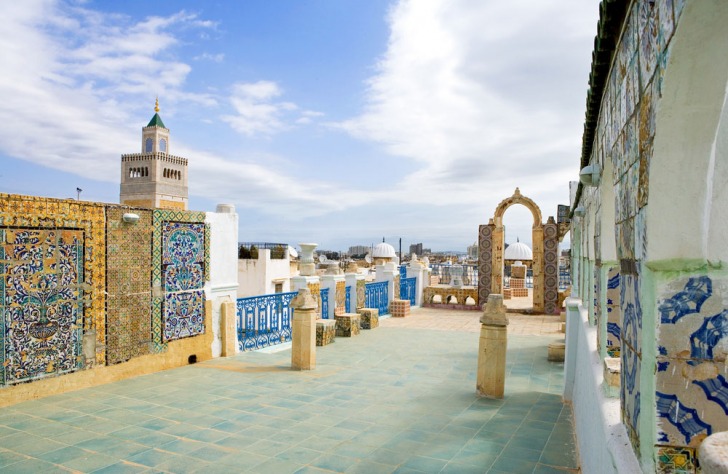

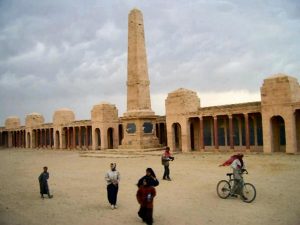
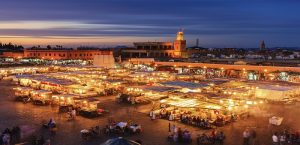
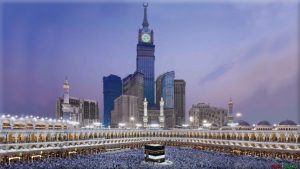
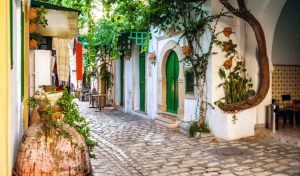
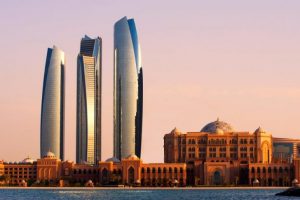





Not very safe
People here are very racist, I didn’t feel safe here at all, yes, most people seem ok and keep to themselves, but still you feel how different they treat you as a foreigner, and not in a nice way.
People shout and threat each other and it doesn’t feel safe, I would rate it as 2 star in safety.
People are so friendly they want always to help us , it’s a beautiful country we feel so safe in Tunisia, then we discovered that many foreigners come from Europe to live in Tunisia cause it’s cheap and safe and near to Europe.
Wonderful
Tunisia is very safe to visit and to live! No place on earth is completely “safe” but i will take someone who’s trying to sell me a pricy souvenir over gun shots and murder any day of the week! People are very friendly and approachable in fact we noticed that they became even friendlier when we went straight and asked them without second thoughts i guess they take it as a sign of trust. ( They’re highly educated by the way and they speak French and English and sometimes Italian and German)
Food is amazing, if you like fresh ingredients and mediterranean gastronomy then you’ll love it!
I met with my childhood friend who moved there 5 years ago and she couldn’t be happier!
Places to visit: Tunis old town (souk), Sidi Bousaid (Like Santorini) , Gammarth, Hammamet and Sousse for nightlife and beaches, El Djem collasyium (second largest after Rome), The island of Djerba, Toseur and Douze in the south for desert safari and oasis ( The set of star wars) , also plenty of ruins and historical places some aged over 3000 years!